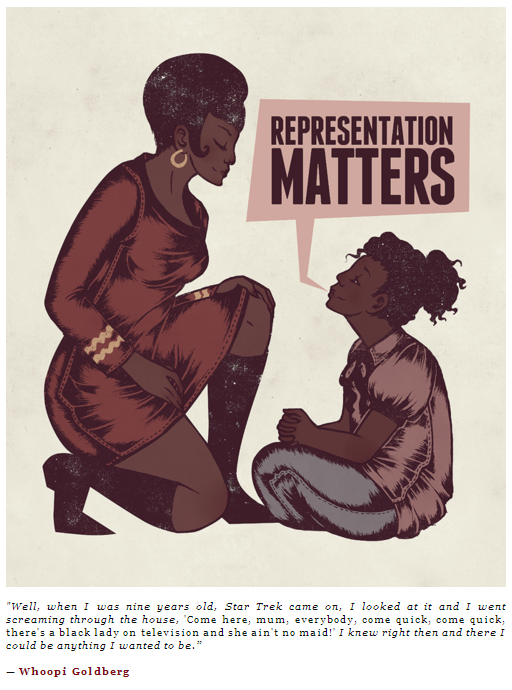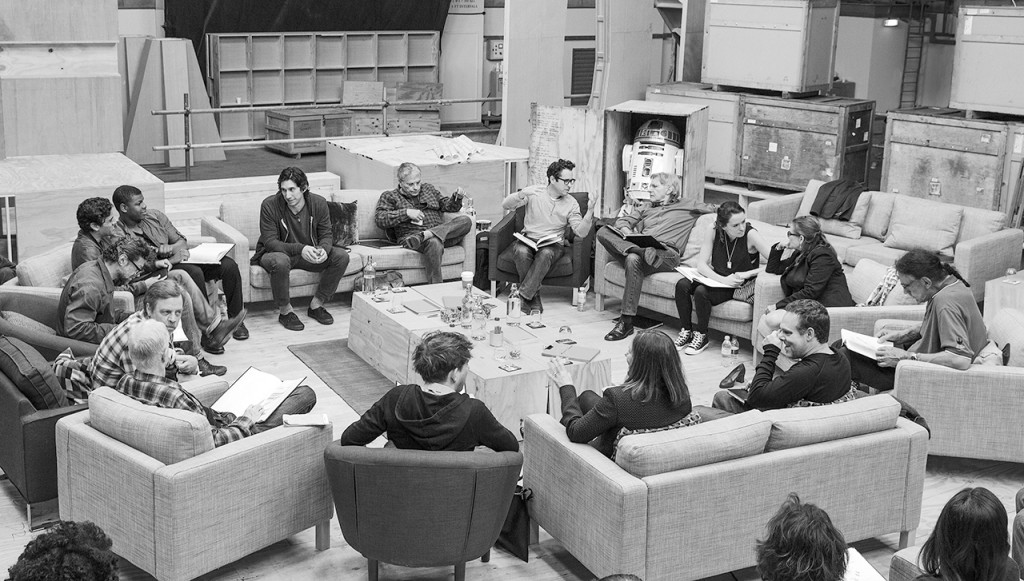Last Tuesday morning, the Star Wars team announced the cast for Episode VII. Harrison Ford, Carrie Fisher, Mark Hamill, Anthony Daniels, Peter Mayhew, and Kenny Baker will once again take us to a galaxy far, far away, joined by John Boyega, Daisy Ridley, Adam Driver, Oscar Isaac, Andy Serkis, Domhnall Gleeson, and Max von Sydow. Nerds and news outlets met the news with excitement (John Boyega!), amazement (Max von Sydow!), confusion (Adam Driver?), and a healthy dose of pushback for the dearth of women and people of color. Two female actors have been cast, including a returning Princess Leia, and two people of color have been cast, one of whom (Oscar Isaac) often plays or passes as white (Llewyn Davis in Inside Llewyn Davis, Prince John in Robin Hood, Orestes in Agora). Even if they add the rumored “major female role, which will likely be filled by an actress of mixed race,” the weight of the cast will still be heavily white and male.
This is a problem; I wish to be clear about that because many men disagree. Trawling the comments of any of the articles critiquing the race and gender disparity, you’ll find many voices in support of the critiques and many voices declaring it a nonissue, the latter often from white men. The chorus to their silencing tactics and eye-rolling is:
“Who cares?”
“What’s it matter?”
“Why is this even a thing?”
The Essentialist Myth
It matters because there is more to humanity than the white male experience. Star Wars is not a historical document. It isn’t bound by some incontrovertible tradition or history — a fact that was reiterated just last week when they announced they would eradicate the expanded universe from the canon, an expanded universe that was brimming with a diverse and deep cast of heroes — male, female, racially diverse, and alien.
Star Wars is not history; it’s modern mythology, a touchstone in what it means to be human that will shape our pop cultural conversation for generations, as the original trilogy already has. Tell me, please, what is essentially male or white about Luke Skywalker’s character arc? Or Han Solo’s, for that matter. If you think confronting a tyrannical father figure or a life of scoundrel-y Badassitude is the purview of white men, the ladies of Kill Bill would like a word.
Represent.
Representation in Star Wars matters, because the things we see in our media define our dreams and aspirations. They either open our minds and hearts to possibilities or close our minds and hearts off to them. Diversity in our myths is a positive good, because it makes us larger. It expands our horizons by challenging our assumptions, instead of shrinking them to fit our small perspective.

Credit: Tenement Funster
Diversity matters for women, and diversity matters for men. We cannot predict where our influences will come from, but the more exposure to diverse opinions and perspectives we have, the greater our chances are of finding the influences we need.
The casting announcement comes at a contentious time for female geeks, who are still accused of not really existing. Female Star Wars fans especially have had to fight for even inch of fandom they can find, often creating their own fan resources and spaces when the George Lucas media machine failed them.
Women are more than the token Strong Female Character. The Greeks — who were not paragons of gender equity by any stretch of history — knew this, not batting an eye at including gender parity in the twelve gods atop Olympus. Including women can start with two simple steps, two simple steps Star Wars has already failed to take. And if you still don’t understand why we should, if you’re still asking the question, “Why does it matter?” it can only be because you are ignoring the growing chorus of voices shouting to be heard. And if that is the case, then the fault, dear Brutus, is not in your Star Wars, but in yourself.





